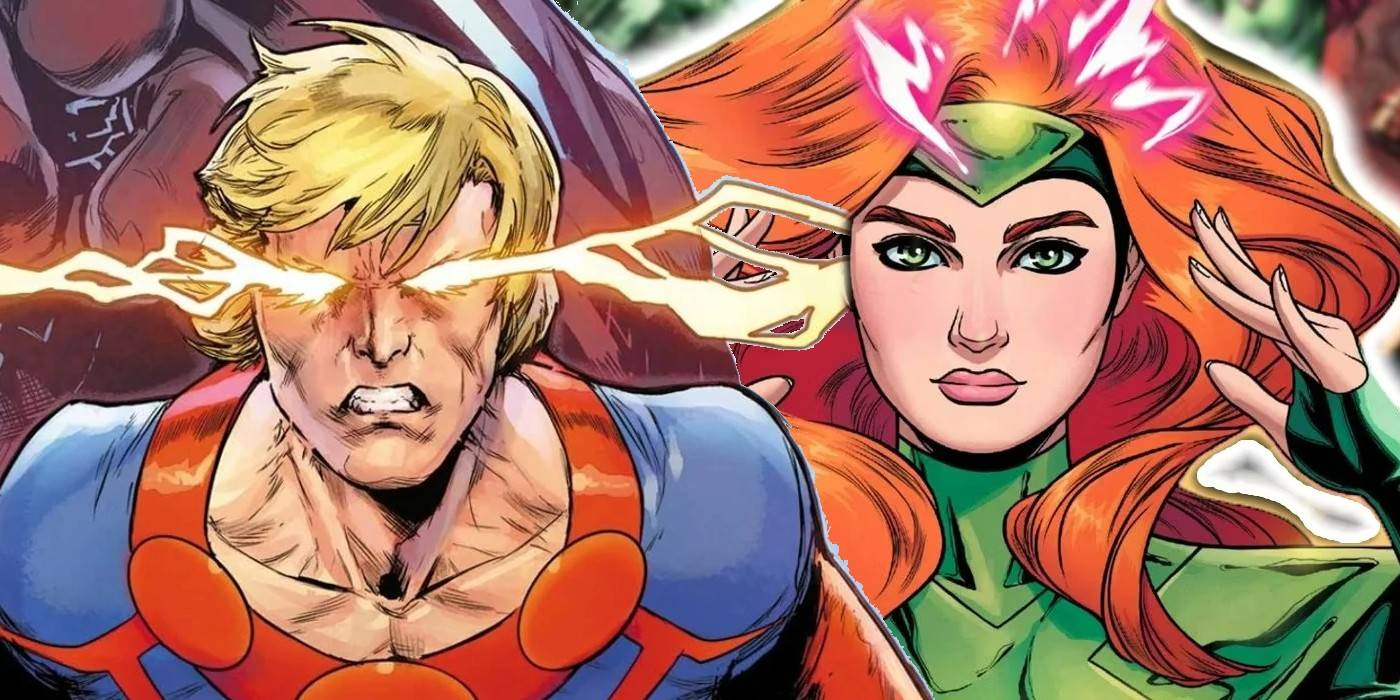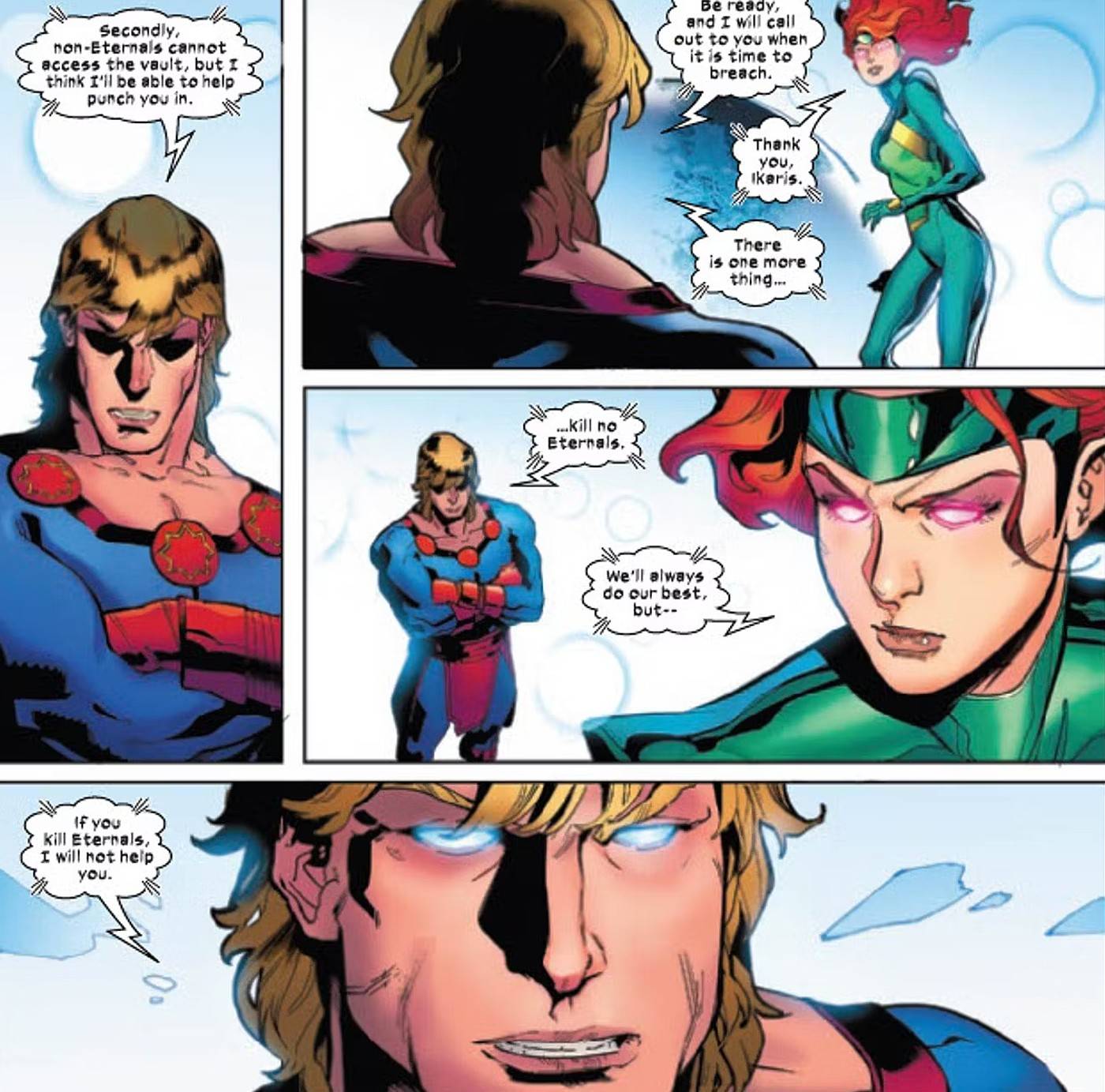Even as the fate hangs in the balance in Marvel’s A.X.E.: Judgment Day event, the heroic Eternals continue to lie to the X-Men, and the Earth, about the true cost of an Eternal life, and this lie may change the direction of mutantkind for years to come.
The impetus for Ikaris’ heroic Eternals break from the rest of Eternal society in Kieron Gillen and Esad Ribic’s recent Eternals series was their discovery that anytime an Eternal is killed and resurrected by the Great Machine, a human life is sacrificed to empower this resurrection process. While Eternals like Ikaris, Sersi, and Thena were disgusted by this discovery and fled to the Deviant city of Lemuria, they have continued to choose not to tell their human and mutant allies about this uncomfortable truth, even as Druig’s rule as the Prime Eternal takes the rest of their race into an all-out war against the X-Men.
The first phase of Druig’s horrific attack on mutantkind was two-pronged, sending Thanos’ evil grand-uncle Uranos to slaughter the mutants on Arakko while deploying armored Eternal warriors and the kaiju-like Hex Eternals to assault the nation of Krakoa. In A.X.E. Judgment Day #2 the X-Men of Krakoa succeed in killing the Hex named Syne the Memotaur, and it is revealed that a human named Arjun was killed by the Great Machine to use his life force and resurrect Syne, meaning that the mutants just accidentally murdered a human, unintentionally breaking the first law of Krakoa, “Kill No Man.” Of course, the X-Men have zero clue that the Eternal’s immortality rests on the mortality of man, and X-Men #13 – written by Gerry Duggan with art by Carlos Villa and Matt Milla – shows that the Eternals, even the “heroic” ones, have no intention of letting the X-Men or Avengers in on their secrets. Jean Grey desperately reaches out to Ikaris, imploring his help in ending the battle. Ikaris is able to tell Jean that the X-Men must destroy Uranos’ armory, where the Hex’s power stems from, but he only offers his help to access the armory if Jean promises the X-Men won’t kill any Eternals.
It may seem like Ikaris is doing this out of loyalty to the Eternals, but clearly he is doing it because he is horrified that a murdered Eternal equals a dead innocent human. Still, it begs the question: “Why not tell Jean Grey and the X-Men about this?” The Eternals recently lied to the Avengers about the return of Thanos, who almost destroyed the entire planet, and this lie backfired greatly, leading to the Avengers distrusting the Eternals. Sadly, it seems like these supposedly wise immortal beings have not learned their lesson.
If the X-Men kill an Eternal they will effectively also be killing a human – an offense which is against one of the three central laws of Krakoa. Not only could this change Krakoa’s entire outlook on the death of humans, perhaps separating them even further from their humanity and causing a greater divide between mutantkind and the humans of Earth, but their incidental murders of humans could cause the newly resurrected Celestial to judge them harshly, evne though it was the Celestials who created the Great Machine’s resurrection protocols.
As the war between the X-Men and the Eternals wages on, with Celestial judgment looming in the background, the Eternals’ continued lies about the true cost of an Eternal resurrection could cause the X-Men to accidentally slaughter innocent humans, altering the trajectory mutantkind’s entire future.

